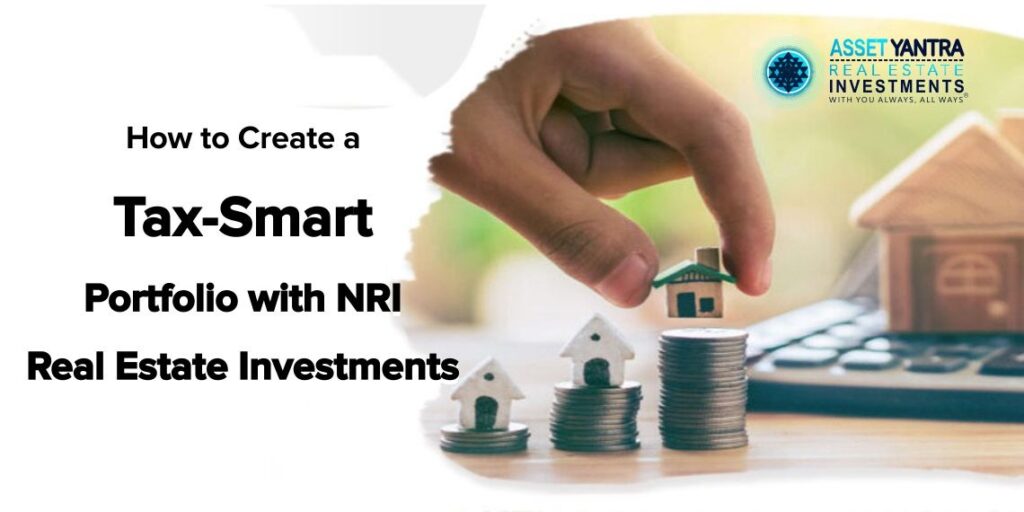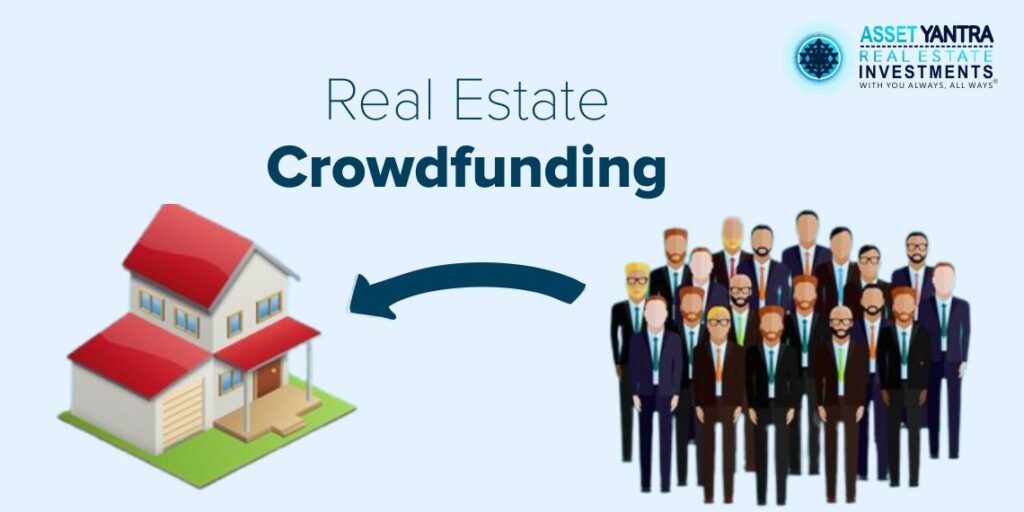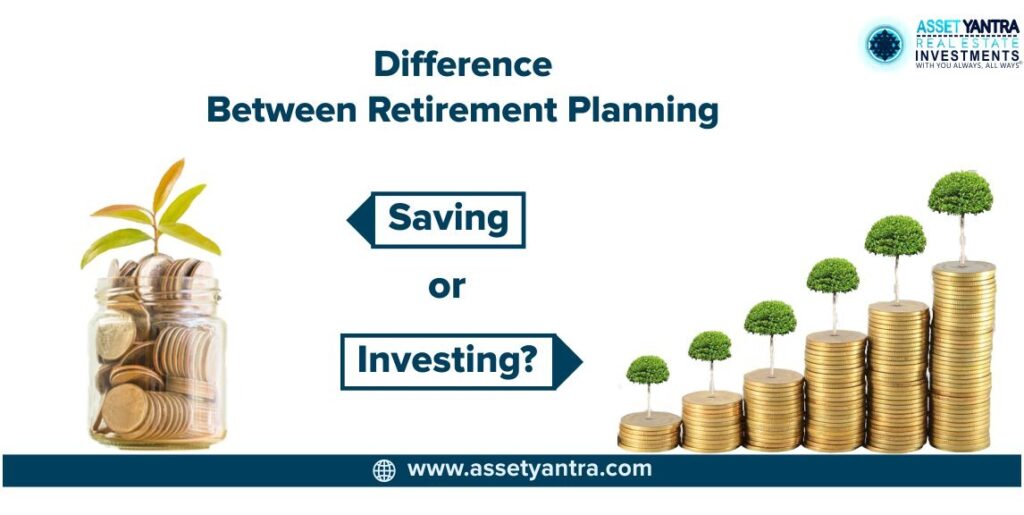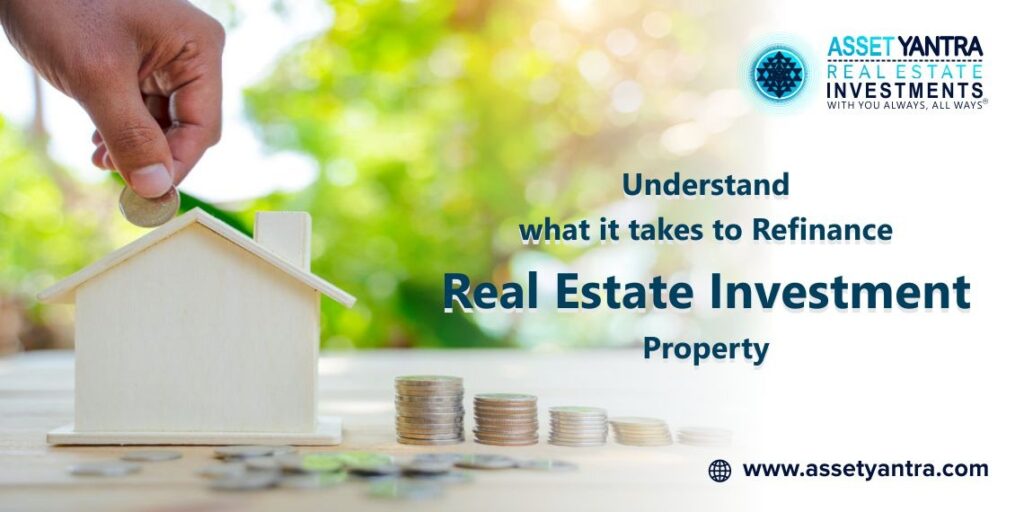How to Create a Tax-Smart Portfolio with NRI Real Estate Investments
India emerged as one of the world’s fastest-growing economies. Resulting in appealing investment opportunities for Canadian NRIs in India. While living in a distant nation, many Indian migrants want to invest their money in India. It is impossible to deny that they are emotionally tied to their homeland. Thus they want to lay a foundation for retiring and developing their financial capital. Equity has generally rewarded diligent long-term investors, whether in India or abroad. It is perhaps the greatest long-term-oriented asset class. Historically producing an annualized gain of 10-12% fir Indian investors. As an NRI you may thinking if and how much you should invest in Indian stock. An investment plan is strategy for allocating money to future-generating activities such as bonds, equities, real estate holdings, or businesses. The investor thinks that through investing in an asset, his or her money will increase or improve in value in the future. Investment options for NRI investors There are several investment choices available in India for NRIs based on their needs and financial objectives. Here are just a few examples: Fixed-Income Investments This is the most prevalent type of investment among Canadian NRIs. The investor may keep his money secure for an indefinite amount of time while earning average returns. The bank determines the interest rate, the term of the FD, and the amount of something like the deposit. Fixed deposits could be opened using an NRE, NRO, or FCNR account. Investing in Mutual Funds To participate in mutual funds in India, an NRI must have an NRE or NRO account. For NRIs, investing in mutual funds is indeed a cost-effective alternative. However, because of rigorous requirements imposed by the Foreign Account Tax Compliance Act. Several mutual funds do not accept applications from NRIs resident in the United States and Canada (FATCA). Non-Resident and ordinary Indian investors face the same tax rates. Short-term capital gains from stock and equity-oriented hybrid funds are taxed at 15%. Whereas long-term capital gains above Rs.01 lakh are taxed at 10%. Scheme National de Pensions (NPS) Canadian NRIs can invest in stock, debt, or a mix of the 2 under this plan. An NRI can register an NPS account provided he is between the ages of 18 and 60 and has an Aadhaar card and a PAN card. An NRI must have an NRE or NRO account. Direct Investment Portfolio Investment Scheme (PIS) allows NRIs to invest the National Stock Exchange of India Ltd and earn better returns. To engage in the stock market, the investor must maintain a constant eye on the market condition. Which can be tumultuous at times. NRIs can invest in the stock market. If they have a Demat and trading account, an NRE, an NRO account, and a PIS account. Real Estate Real estate has traditionally been the greatest investment choice for non-resident Indians (NRIs) in India. There are several real estate investment possibilities accessible, including plots, villas, independent houses, and social apartments. The value of the rupee versus the dollar, however, and the Indian real estate market, dictate the returns and assessments. Securities issued by the federal government Government Securities (G-Secs) are indeed a risk-free investment for NRIs since the government guarantees both the interest and principal amount. Through the Fully Accessible Route. NRIs may invest in this plan (FAR). PPF A PPF Account cannot be opened by anyone with NRI status. If you held a PPF account before leaving India and are now an NRI, you can keep it. An NRI visiting Canada can spend up to 1.5 lakh dollars every fiscal year now and continue to do so till the investment matures. He will be unable to extend the account after it has reached maturity. If an NRI files IT returns in India. He is entitled to Section 80C income tax deductions for PPF deposits. Important Considerations for Non-Resident Indians NRIs should bear in mind that they must create an NRE and NRO account before any transactions may take place. Foreign currency Non-Resident accounts should be formed to prevent volatility in the exchange rates of foreign money earned. When purchasing real estate, an NRI should examine if it’ll be owned by the joint owner or a single owner, as tax responsibility is borne by the first owner. To make investments in India, NRIs must obtain a Permanent Account Number (PAN Card). An NRI must get a Portfolio Investment Scheme (PIS) letter from the Reserve Bank of India before investing in the Indian equities market under the PIS scheme. Although NRIs have various investment alternatives open to them, including mutual funds, bonds, or direct equity, they need to educate themselves on the schemes first. NRIs must be aware of the rules governing repatriation. According to FEMA guidelines, in the case of a real estate purchase, repatriation of sale profits is limited to a maximum of $1 million every fiscal year. They may, however, repatriate over $1 million per year if it is property being donated. Conclusion These are the numerous investment opportunities available to NRIs in India. They can weigh the advantages and downsides and use their judgement before investing in one or both of those possibilities. Asset Yantra & Gak Group is the fastest – growing wealth – tech platform in India, specializing in commercial property investments. Asset Yantra caters to investors from all around the world. It also provides high – quality investment possibilities at low costs through fractional ownership. NRIs can have access to grade-A assets without any time-consuming obstacles. Asset Yantra offers investment options based on risk tolerance and individual investor objectives such as passive income, capital appreciation, and risk control. FAQs on Tax Saving Portfolio with NRI Investments How NRIs can lower/avoid TDS on property sales? The lower the TDS on the sale of property
How to Create a Tax-Smart Portfolio with NRI Real Estate Investments Read More »










